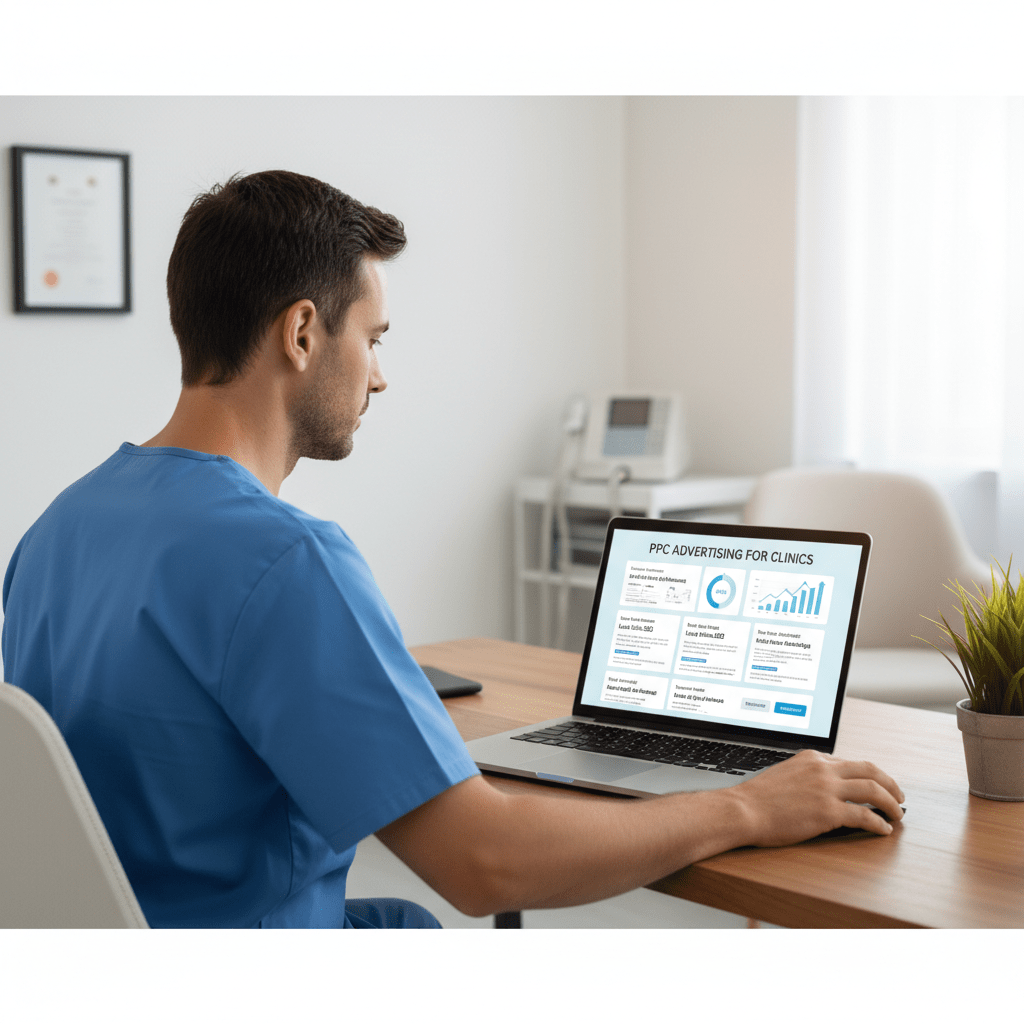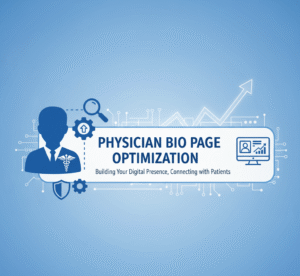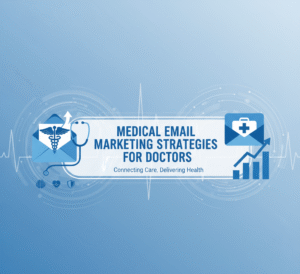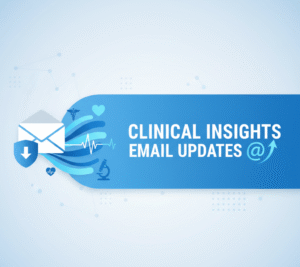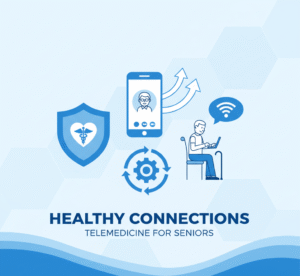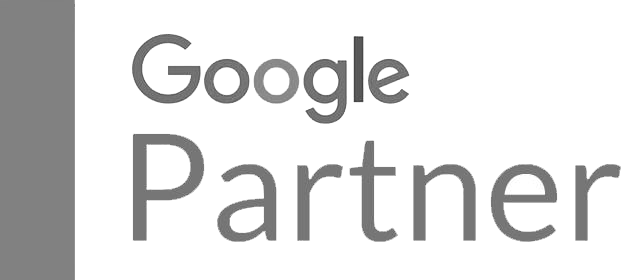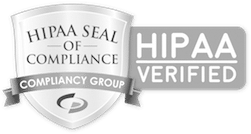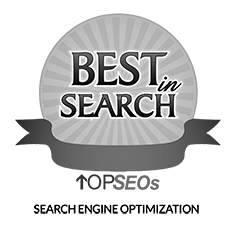“Analyze whether PPC ads for clinics are a smart investment, exploring the benefits of immediate visibility and granular targeting while navigating challenges like high costs and a steep learning curve.”
Running a successful clinic isn’t just about providing top-notch medical care. It’s also about reaching the patients who need you most. In today’s digital landscape, that often means navigating the complex world of online advertising. Among the many options, Pay-Per-Click (PPC) advertising stands out. It promises immediate visibility and a direct line to potential patients. But is it the right fit for your practice? This article offers an objective, balanced analysis of PPC ads for clinics. We’ll help you make a data-driven decision about your marketing budget.
We will explore the core benefits and undeniable challenges. We aim to equip you with the knowledge to decide if PPC is a wise investment, specifically Google Ads for doctors. We will explore healthcare paid advertising in detail, looking at the good and the bad. Let’s get started.
The Upside: Why PPC Can Be a Game-Changer for Clinics
PPC isn’t just another marketing channel. It offers distinct advantages that significantly boost a clinic’s patient acquisition efforts. Let’s break down the key benefits.
Immediate First-Page Visibility on Google
Imagine this: a potential patient in your area searches for “dentist near me” or “urgent care clinic.” Where do you want your practice to appear? Right at the top. This is precisely what PPC, especially Google Ads for doctors, delivers. Organic search results can take months, sometimes years, to climb to the first page. PPC bypasses this waiting game entirely. You can appear prominently at the top of search results almost instantly. This immediate visibility is a significant draw for clinics looking to expand their patient base quickly.
Think about the speed. A new clinic opens its doors. It needs patience now. Relying solely on SEO might mean a slow trickle of new patients for months. PPC offers a rapid influx. This rapid visibility is crucial. It puts your clinic in front of people actively searching for your services. This isn’t passive advertising. It’s highly targeted. People searching on Google have intent. They are looking for a solution. Your ad provides that solution directly.
This immediate presence is vital in competitive markets. If many other clinics offer similar services, getting noticed quickly is paramount. PPC ensures you’re not buried on page two or three. It puts you in the prime real estate. This prime real estate translates to more clicks. More clicks mean more potential patients.
Furthermore, this visibility isn’t just for new clinics. Established practices can use PPC to promote new services, highlight special offers, and respond to seasonal demand. For example, a dermatology clinic can run ads for acne treatments during back-to-school season, and a flu shot clinic can ramp up ads in the fall. The flexibility and speed are powerful.
Granular Targeting: Reaching Your Ideal Patient
One of PPC’s most compelling features is its ability to target specific audiences. You don’t just throw your ad out to everyone; you meticulously define who sees it. This granular targeting makes healthcare paid advertising highly efficient and reduces wasted ad spend.
You can target by geography. This is essential for clinics. You want to attract patients who can actually visit your physical location. You can specify zip codes, cities, or radii around your clinic. A physical therapist in downtown Chicago doesn’t want to show ads to someone in Los Angeles. PPC prevents this. It keeps your ads local and relevant.
Beyond location, you can target by demographics, including age, gender, and income. If your clinic specializes in pediatric care, you can target parents. If you focus on senior health, you can target an older demographic. This precision ensures your message reaches the most receptive audience.
The power of targeting extends to specific services. Do you want to promote your new dental implant service? You can create ads for keywords like “dental implants cost” or “best dental implants near me.” Do you offer specialized allergy testing? Target keywords related to “allergy relief” or “allergy doctor.” This level of specificity means your ad directly answers a patient’s need, increasing the likelihood of a click and conversion.
Consider behavioral targeting. While not as direct as keyword targeting, PPC platforms offer some options. You can reach people who have shown interest in health-related topics. You can even exclude people who are unlikely to be your patients. This sophisticated targeting refines your audience further. It makes your marketing budget for clinics go further.
This precise targeting is a stark contrast to traditional advertising. A newspaper ad reaches a broad, undefined audience, while a PPC ad reaches individuals actively searching for what you offer. This difference is fundamental. It drives higher conversion rates and improves your PPC ROI for medical practices.
Fully Trackable ROI: Knowing Where Every Dollar Goes
Guesswork has no place in a clinic’s marketing strategy. One of PPC’s greatest strengths is its transparency. Every aspect of your campaign is measurable, so you know exactly where your clinic marketing budget is going. You can track performance down to the smallest detail, making it possible to understand your PPC ROI for medical practices precisely.
You can see how many times your ad was shown (impressions). You can see how many people clicked on it (clicks). More importantly, you can track what happens after the click. Did they visit your contact page? Did they fill out a form? Did they call your clinic? Conversion tracking makes all of this visible.
This data is invaluable. It tells you which keywords are performing best. It shows which ad copy resonates most with your audience. It reveals which landing pages are most effective at converting visitors into leads. With this information, you can continuously refine your campaigns. You can allocate your budget to what works. You can stop spending on what doesn’t.
Understanding your patient acquisition cost is critical. PPC allows you to calculate this accurately. Your ads show how much it costs you to get a new patient. This metric is vital for budgeting and proving the value of your marketing efforts. If your cost per acquisition is too high, you can adjust your strategy and optimize your campaigns to bring that cost down.
This level of tracking also fosters accountability. You can demonstrate the direct impact of your PPC investment, which is often tricky with other marketing channels. You can show stakeholders concrete numbers and prove the value of your efforts. This data-driven approach is a cornerstone of effective medical PPC management. It ensures your marketing strategy is based on facts, not assumptions.
The Downside: The Realities and Challenges of PPC for Clinics
While the benefits are clear, PPC isn’t a magic bullet. It comes with its own set of challenges. Practice owners must understand these drawbacks and mitigate them effectively. Ignoring them can lead to wasted ad spend and frustration.
Potential for High Cost-Per-Click (CPC) in Competitive Markets
The healthcare industry is highly competitive. This competition directly impacts PPC costs. Especially for Google Ads for doctors. Popular keywords related to medical services often have a high cost-per-click (CPC). This is due to an auction system. Advertisers bid against each other for prime ad placements. The more bidders, the higher the price.
Consider terms like “urgent care,” “dental implants,” or “dermatologist.” Many clinics want to appear for these searches. This drives up the CPC. In some urban areas, a single click for a highly sought-after medical keyword could cost several or even tens of dollars. If your budget is limited, these high CPCs can quickly deplete your funds. You might get fewer clicks than expected. This can make your patient acquisition cost prohibitive.
This issue is particularly pronounced in saturated markets. Major cities often see fierce competition. Rural areas might have lower CPCs. However, the patient volume might also be lower. Balancing cost and reach is a constant challenge.
Furthermore, competitors aren’t just other clinics. Large hospital systems and national healthcare networks also use PPC. They often have much larger marketing budgets, which allows them to bid higher, which can push smaller, independent clinics out of the top ad spots.
Understanding the potential for high CPCs is crucial when asking, “Is PPC worth it for doctors?” It requires careful keyword research. It demands a smart bidding strategy. It necessitates continuous monitoring. Without expert medical PPC management, a clinic can quickly overspend. They can see little return. This isn’t to say PPC is always too expensive. This means that careful planning and ongoing optimization are essential.
The Steep Learning Curve: More Than Just Turning Ads On
Many practice owners try to manage PPC campaigns themselves. They think it’s simple: Just set up an account, write ads, and turn them on. The reality is far more complex. PPC has a steep learning curve, requires specialized knowledge, and requires ongoing effort. It’s not a set-it-and-forget-it solution.
Effective PPC management involves many moving parts. You need to conduct thorough keyword research. This isn’t just picking obvious terms. It’s finding long-tail keywords. It’s identifying negative keywords to avoid irrelevant clicks. You need to craft compelling ad copy. This means understanding what motivates potential patients. You need to create high-converting landing pages. These pages must be designed to turn visitors into leads.
Beyond initial setup, continuous optimization is key. You must monitor your campaign performance daily, adjust bids, pause underperforming keywords, test new ad copy, refine your targeting, and analyze conversion data. This takes time, expertise, and dedication.
Without this expertise, common mistakes are frequent. Clinics often use broad match keywords, leading to irrelevant clicks. They might send ad traffic to their general homepage rather than a specific service page. They might not set up conversion tracking properly. Each of these mistakes wastes money and reduces the effectiveness of your healthcare paid advertising.
The learning curve can be overwhelming for busy medical professionals. Their primary focus is patient care. They don’t have hours each week to dedicate to learning the intricacies of Google Ads. This lack of specialized knowledge can lead to poor campaign performance. It can result in a negative PPC ROI for medical practices. It highlights the need for professional medical PPC management.
Necessity of Continuous, Expert Management to Avoid Wasted Ad Spend
PPC campaigns are dynamic. The digital advertising landscape constantly changes. Competitors adjust their strategies. Search trends evolve. Algorithm updates occur. Because of this, PPC campaigns require continuous, expert management. If you leave a campaign unattended, it will almost certainly underperform. It will waste your marketing budget for clinics.
Think of it like tending a garden. You can plant the seeds. But if you don’t water, weed, and prune, the garden won’t thrive. Similarly, a PPC campaign needs constant care. This includes regular bid adjustments. It means pausing keywords that aren’t converting. It involves adding new, relevant keywords as search trends emerge. It requires A/B testing of ad copy and landing pages. This ensures you’re constantly improving.
Expert management also means understanding the nuances of the platform. Google Ads has many features. There are different bidding strategies, ad extensions, and campaign types. Knowing which ones to use and when is crucial. A non-expert might miss opportunities to optimize. They might make choices that inadvertently increase costs or reduce effectiveness.
Moreover, fraud clicks are a genuine concern. Competitors might click your ads to deplete your budget. While platforms have some safeguards, expert managers are better equipped to identify and mitigate these issues. They can also ensure compliance with healthcare advertising regulations. This is a complex area. It requires careful attention to detail.
The truth is, even a well-set-up campaign can degrade over time without active management. What worked last month might not work today. This continuous need for attention can be a significant burden, especially for clinics with limited internal marketing resources. This is why professional medical PPC management isn’t just a luxury. It’s often a necessity. It ensures maximum patient acquisition and a strong PPC ROI for medical practices.
Is PPC Worth It for Doctors? Weighing the Investment
After considering the pros and cons, the question remains: “Is PPC worth it for doctors?” The answer isn’t a simple yes or no. It depends on several factors, including your specific goals, budget, and willingness to invest in proper management.
PPC offers undeniable advantages. It provides immediate visibility, precise targeting, and transparent ROI tracking. These benefits can lead to a significant increase in patient volume. PPC can be incredibly effective for clinics seeking rapid growth or those in highly competitive specialties. It can quickly fill appointment slots and boost revenue.
However, the challenges are also real. High CPCs can be a barrier. The complexity requires significant time and expertise. WPC can quickly become an expensive drain, without proper management, yielding little to no return. It’s not a magic money tree. It’s a powerful tool. But, like any powerful tool, it needs skilled hands to operate it.
InvigoMedia: Amplifying the Pros, Mitigating the Cons
This is where expert medical PPC management comes into play. For clinics looking to harness the power of PPC without getting bogged down by its complexities, InvigoMedia offers a strategic solution. We understand the unique landscape of healthcare paid advertising. We know how to navigate its challenges.
Amplifying the Pros: How We Maximize Your Potential
Accelerated Visibility: We don’t just get you on the first page. We ensure your ads are compelling, stand out, and target the right patients at the right time. Our expertise in keyword selection and ad copy creation maximizes your immediate exposure.
Precision Targeting: We go beyond basic demographics and delve deep into patient behavior and intent. Our strategies ensure your ads reach individuals actively searching for your specific services. We use geographic targeting, demographic filters, and interest-based segments, ensuring every click is a highly qualified lead.
Crystal-Clear ROI: Our commitment to transparency is unwavering. We implement robust conversion tracking and provide detailed reports. You will always know your patient acquisition cost. You will see your exact PPC ROI for medical practices. We show you the impact of every dollar spent, empowering you with data-driven insights.
Mitigating the Cons: Expertly Navigating the Challenges
Cost-Effective Bidding Strategies: We don’t let high CPCs drain your budget. Our team employs sophisticated bidding strategies. We constantly monitor market trends and adjust bids in real time, ensuring you get the most clicks for your budget. We strive for a low patient acquisition cost without sacrificing visibility.
Expert Management, No Learning Curve for You: You focus on patient care. We handle the intricacies of PPC. Our team of certified professionals brings years of experience to your campaign. We manage keyword research, ad creation, landing page optimization, and continuous monitoring. You don’t need to learn Google Ads. We are your dedicated medical PPC management team.
Continuous Optimization and Fraud Prevention: Our work doesn’t stop after launch. We continuously monitor and optimize your campaigns, A/B test ad copy, refine targeting, and actively work to prevent ad fraud. We ensure your clinic’s marketing budget is spent on genuine potential patients. This proactive approach ensures sustained performance and protects your investment.
In essence, InvigoMedia acts as your expert guide. We navigate the sharp edge of PPC, turning a potentially complex and costly endeavor into a streamlined, high-performing patient acquisition machine. We empower your clinic to thrive in the competitive digital landscape, maximizing your PPC ROI for medical practices.
FAQs About PPC Ads for Clinics
Q1: What is PPC advertising for clinics?
A1: PPC, or Pay-Per-Click, is a digital advertising model. Advertisers pay a fee each time their ad is clicked. For clinics, this typically means placing ads on search engines like Google. These ads appear when potential patients search for relevant medical services. It’s a way to get immediate visibility. It drives targeted traffic to your clinic’s website.
Q2: How is PPC different from SEO for clinics?
A2: PPC offers immediate results. Your ads can appear on the first page of Google within hours. SEO, or Search Engine Optimization, focuses on earning organic, unpaid rankings. SEO takes time. It can take months or even years to see significant results. PPC costs money per click. SEO doesn’t cost directly per click but requires ongoing content and technical optimization investment. Both are important for a comprehensive digital marketing strategy.
Q3: What is a typical marketing budget for PPC clinics?
A3: A typical marketing budget for PPC clinics varies greatly. It depends on your specialty, location, and competitive landscape. Highly competitive areas and specialties will require a larger budget. It’s common for clinics to start with a few hundred to a few thousand dollars per month. This allows them to test the waters. This helps them gather data. The key is to start with a budget you are comfortable with. Then you can scale up as you see positive results and a strong PPC ROI for medical practices.
Q4: How quickly can I see results from PPC ads for my clinic?
A4: One of the most significant advantages of PPC is speed. You can start seeing results almost immediately. Within days or weeks, you can generate clicks. You can create website visits. You can get new patient inquiries. However, optimizing campaigns for the best patient acquisition cost takes time. This usually requires a few weeks to months of continuous adjustments and data analysis.
Q5: What is a good “Cost-Per-Click” (CPC) for medical practices?
A5: There’s no single “good” CPC. It varies widely. It depends on your specialty, location, and specific keywords. General medical terms can be expensive. Highly specialized, long-tail keywords might have lower CPCs. The critical metric isn’t just CPC. It’s your “Cost Per Acquisition” (CPA). This measures how much it costs to get one new patient. A higher CPC can be acceptable if it leads to a valuable new patient.
Q6: Do I need a special landing page for my PPC campaigns?
A6: Yes, absolutely. Sending PPC traffic to your clinic’s general homepage is a common mistake. A dedicated landing page is crucial. This page should be highly relevant to the ad. It should focus on a specific service or offer. It should have a clear call to action. This could be a “book an appointment” form or a phone number. Optimized landing pages significantly improve conversion rates. This lowers your patient acquisition cost.
Q7: Can I manage Google Ads for my clinic myself, or should I hire a professional?
A7: You can manage Google Ads yourself. However, it involves a steep learning curve. It requires significant time and expertise. Most medical professionals lack this time. They also lack the specialized knowledge. Mistakes can quickly lead to wasted ad spend. Hiring a professional for medical PPC management is often a more cost-effective solution. They bring expertise. They bring continuous optimization. They ultimately deliver a better PPC ROI for medical practices.
Q8: Are Facebook Ads for clinics as effective as Google Ads?
A8: Facebook Ads for clinics can be very effective. However, they serve a different purpose than Google Ads. Google Ads targets highly intent users who are actively searching for a service. Facebook Ads are more for discovery. They reach users based on interests and demographics. They are great for brand awareness, promoting specific offers, and retargeting past website visitors. A comprehensive healthcare paid advertising strategy often includes both. It leverages the strengths of each platform.
Q9: How can I track the ROI of my PPC campaigns?
A9: Tracking PPC ROI for medical practices involves setting up conversion tracking. This means tracking specific actions on your website. This includes form submissions, phone calls, or appointment bookings. You then compare the cost of these conversions to the revenue generated by new patients. This data allows you to calculate your exact return on investment. Tools within Google Ads and Google Analytics help with this. Professional medical PPC management services handle this tracking for you.
Q10: What are negative keywords, and why are they essential for clinics?
A10: Negative keywords are terms you tell Google not to show your ads for. For example, if you’re a private clinic, you might add “free” as a negative keyword. This prevents your ads from appearing for “free doctor consultation.” This is important because it prevents irrelevant clicks. It saves your marketing budget for clinics. It ensures your ads are seen only by truly interested potential patients. It improves the efficiency of your healthcare paid advertising.

